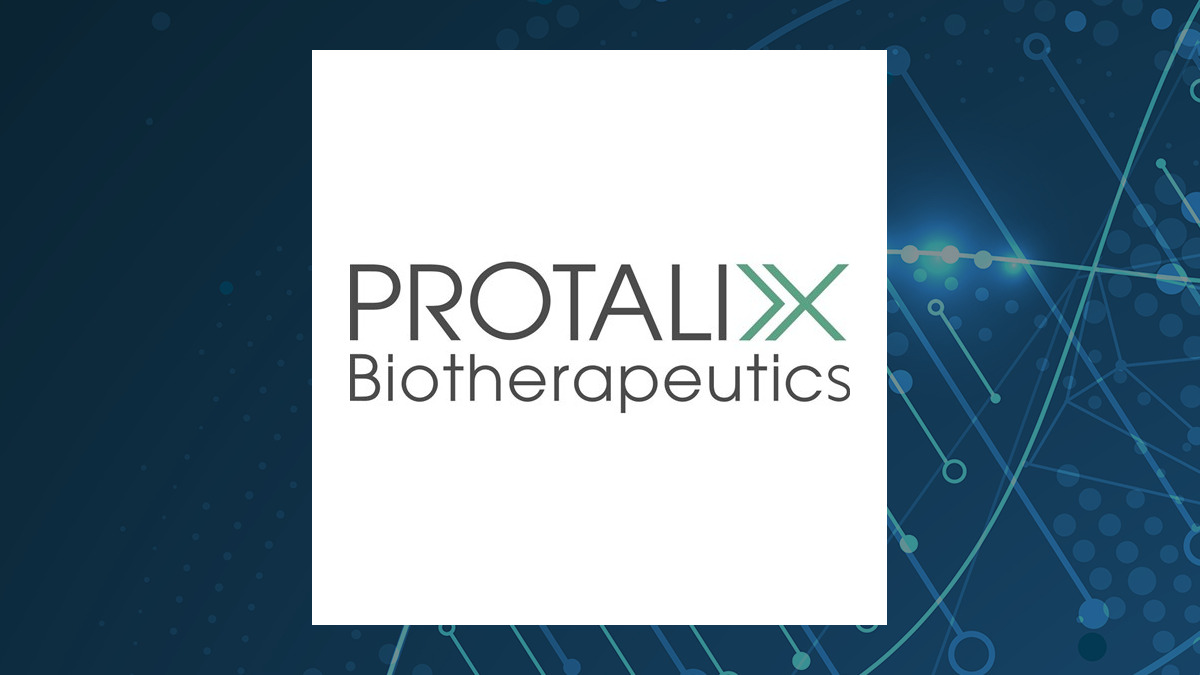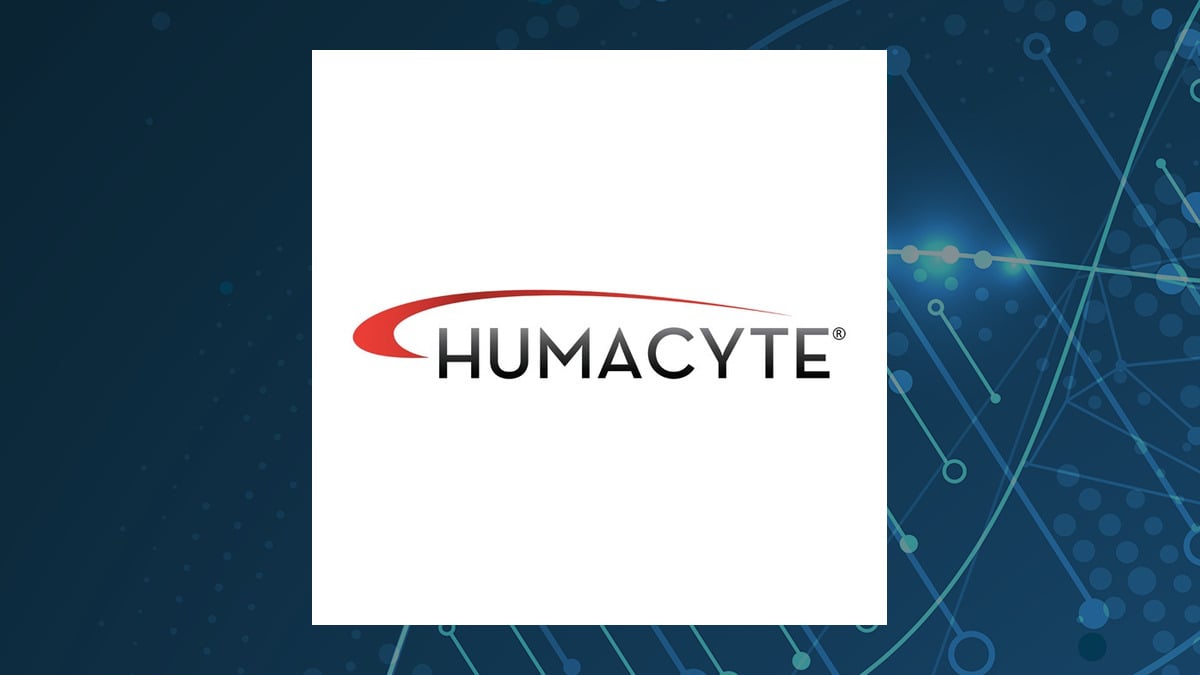Protalix BioTherapeutics (NYSE:PLX – Get Free Report) and Humacyte (NASDAQ:HUMA – Get Free Report) are both small-cap medical companies, but which is the better business? We will contrast the two companies based on the strength of their earnings, valuation, institutional ownership, risk, profitability, dividends and analyst recommendations.
Analyst Ratings
This is a breakdown of current ratings for Protalix BioTherapeutics and Humacyte, as provided by MarketBeat.com.
| Sell Ratings | Hold Ratings | Buy Ratings | Strong Buy Ratings | Rating Score | |
| Protalix BioTherapeutics | 0 | 0 | 0 | 0 | 0.00 |
| Humacyte | 0 | 1 | 6 | 1 | 3.00 |
Humacyte has a consensus price target of $13.71, suggesting a potential upside of 193.04%. Given Humacyte’s stronger consensus rating and higher probable upside, analysts clearly believe Humacyte is more favorable than Protalix BioTherapeutics.
Volatility and Risk
Valuation and Earnings
This table compares Protalix BioTherapeutics and Humacyte”s gross revenue, earnings per share (EPS) and valuation.
| Gross Revenue | Price/Sales Ratio | Net Income | Earnings Per Share | Price/Earnings Ratio | |
| Protalix BioTherapeutics | $45.67 million | 3.66 | $8.31 million | ($0.13) | -17.46 |
| Humacyte | $1.57 million | 375.17 | -$110.78 million | ($1.34) | -3.49 |
Protalix BioTherapeutics has higher revenue and earnings than Humacyte. Protalix BioTherapeutics is trading at a lower price-to-earnings ratio than Humacyte, indicating that it is currently the more affordable of the two stocks.
Profitability
This table compares Protalix BioTherapeutics and Humacyte’s net margins, return on equity and return on assets.
| Net Margins | Return on Equity | Return on Assets | |
| Protalix BioTherapeutics | -21.03% | -30.89% | -11.74% |
| Humacyte | N/A | -942.81% | -93.82% |
Institutional & Insider Ownership
16.5% of Protalix BioTherapeutics shares are held by institutional investors. Comparatively, 44.7% of Humacyte shares are held by institutional investors. 6.3% of Protalix BioTherapeutics shares are held by company insiders. Comparatively, 11.2% of Humacyte shares are held by company insiders. Strong institutional ownership is an indication that endowments, large money managers and hedge funds believe a company will outperform the market over the long term.
Summary
Humacyte beats Protalix BioTherapeutics on 10 of the 15 factors compared between the two stocks.
About Protalix BioTherapeutics
 Protalix BioTherapeutics, Inc., a biopharmaceutical company, engages in the development, production, and commercialization of recombinant therapeutic proteins based on its proprietary ProCellEx plant cell-based protein expression system in the United States, Australia, Canada, Israel, Brazil, Russia, Turkey, and internationally. The company offers Elelyso for the treatment of Gaucher disease; and Elfabrio for the treatment of adult patients with a confirmed diagnosis of Fabry disease. It is also developing PRX-115, a plant cell-expressed recombinant PEGylated Uricase which is in Phase I trial for the treatment of gout; and PRX-119, a plant cell-expressed PEGylated recombinant human DNase I product candidate that is in preclinical phase for the treatment of NETs-related diseases. The company has agreements and partnerships with Pfizer; Fundação Oswaldo Cruz; and Chiesi Farmaceutici S.p.A. The company was incorporated in 1993 and is headquartered in Karmiel, Israel. Protalix BioTherapeutics, Inc. is a subsidiary of Protalix Ltd.
Protalix BioTherapeutics, Inc., a biopharmaceutical company, engages in the development, production, and commercialization of recombinant therapeutic proteins based on its proprietary ProCellEx plant cell-based protein expression system in the United States, Australia, Canada, Israel, Brazil, Russia, Turkey, and internationally. The company offers Elelyso for the treatment of Gaucher disease; and Elfabrio for the treatment of adult patients with a confirmed diagnosis of Fabry disease. It is also developing PRX-115, a plant cell-expressed recombinant PEGylated Uricase which is in Phase I trial for the treatment of gout; and PRX-119, a plant cell-expressed PEGylated recombinant human DNase I product candidate that is in preclinical phase for the treatment of NETs-related diseases. The company has agreements and partnerships with Pfizer; Fundação Oswaldo Cruz; and Chiesi Farmaceutici S.p.A. The company was incorporated in 1993 and is headquartered in Karmiel, Israel. Protalix BioTherapeutics, Inc. is a subsidiary of Protalix Ltd.
About Humacyte
 Humacyte, Inc. engages in the development and manufacture of off-the-shelf, implantable, and bioengineered human tissues for the treatment of diseases and conditions across a range of anatomic locations in multiple therapeutic areas. The company using its proprietary and scientific technology platform to engineer and manufacture human acellular vessels (HAVs) to be implanted into patient without inducing a foreign body response or leading to immune rejection. It is developing a portfolio of HAVs, which would target the vascular repair, reconstruction, and replacement market, including vascular trauma; arteriovenous access for hemodialysis; peripheral arterial disease; pediatric heart surgery; and coronary artery bypass grafting, as well as for the delivery of cellular therapy, including pancreatic islet cell transplantation to treat Type 1 diabetes. The company was founded in 2004 and is headquartered in Durham, North Carolina.
Humacyte, Inc. engages in the development and manufacture of off-the-shelf, implantable, and bioengineered human tissues for the treatment of diseases and conditions across a range of anatomic locations in multiple therapeutic areas. The company using its proprietary and scientific technology platform to engineer and manufacture human acellular vessels (HAVs) to be implanted into patient without inducing a foreign body response or leading to immune rejection. It is developing a portfolio of HAVs, which would target the vascular repair, reconstruction, and replacement market, including vascular trauma; arteriovenous access for hemodialysis; peripheral arterial disease; pediatric heart surgery; and coronary artery bypass grafting, as well as for the delivery of cellular therapy, including pancreatic islet cell transplantation to treat Type 1 diabetes. The company was founded in 2004 and is headquartered in Durham, North Carolina.
Receive News & Ratings for Protalix BioTherapeutics Daily - Enter your email address below to receive a concise daily summary of the latest news and analysts' ratings for Protalix BioTherapeutics and related companies with MarketBeat.com's FREE daily email newsletter.
